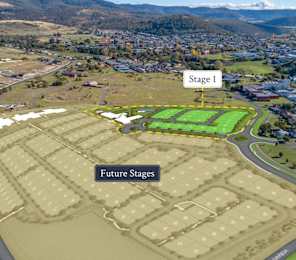The Independent Health and Aged Care Pricing Authority (IHACPA) has released a 46-page report outlining the feedback received from the sector in the latest round of consultations on their pricing methodology.
IHACPA received submissions from stakeholders between 14 August and 20 September 2024, accepting 46 submissions of which 40 were published online.
The Weekly SOURCE has chosen the key themes highlighted by the sector below:
AN-ACC pricing received too late
In their submission, Ageing Australia (then the Aged & Community Care Providers Association) noted that in December 2023, the Government promised the AN-ACC price would be announced in August to come into effect on 1 October.
That timing in itself limited providers’ ability to budget and plan for their businesses, Ageing Australia said. However, these issues were "exacerbated" even further last year when the AN-ACC price was not announced until mid-September, only weeks before it was implemented.
Dementia care not sufficiently funded
Dementia Australia wrote the AN-ACC pricing structure may be acting as a "disincentive" for providers to accept people with dementia as AN-ACC does not accurately reflect their care needs.
Indeed, IHACPA's report stated, "Several stakeholders emphasised that the cost of delivering care to residents who are mobile with a cognitive impairment is not adequately recognised by the existing AN-ACC classes, particularly for residents with dementia who display challenging behaviours."
Small sample size
The UTS Ageing Research Collaborative noted IHACPA’s 2023 Costing Study, the foundation for 2024-25 pricing advice, surveyed only 111 aged care facilities, 4.2% of the residential aged care population in Australia, and 4,598 residents, 2.5% of residents.
Further refining of MMMs
Bupa Villages and Aged Care said they would like to see a refining of costings outside capital cities.
"Funding under the MMM1 classification fails to account for the elevated cost of care provision outside capital cities in regions such as far-north NSW within the Tweed Shire Council area," Bupa said in its submission.
"In this region, our Pottsville home falls under the MMM1 classification despite significant cost variation compared to our nearby facilities on the Gold Coast."
Long waits for reassessments
The timing and delays in reassessments for aged care residents were also an area of concern for stakeholders.
"The mobility, cognitive, behavioural and health needs of residents can change, leaving providers delivering higher levels of support than they are funded for," IHACPA's report notes.
Cost collections burdensome
Several stakeholders told IHACPA the cost collection process required significant effort, for which they receive no compensation.
Funding insufficient to build new beds
Providers also voiced concerns that underfunding in residential aged care is "constraining the establishment of new residential aged care facilities", meaning there won't be enough beds to meet future needs. Some supported changes to the Base Care Tariff with the aim of encouraging the development of new aged care homes in "areas of unmet need".
Bolton Clarke wrote in their submission, "Failure to allow for a reasonable margin/cost of capital continues to be a key limitation in IHACPA’s costing methodology and should be added to IHACPA’s future workplan."











